10 Possible Reasons your Credit Card
got Declined (And What to Do About It)
 5 min. read
5 min. read_20240930105848000-96da2f590cd7246bbde0051047b0d6f7.jpg)
At one point in time, you may have experienced this awkward situation. The scenario: you're standing at the checkout counter, ready to pay, when suddenly, the cashier informs you of a declined credit card.
Suffice it to say, it's embarrassing and frustrating, especially when you can't immediately understand why it happened. A denied credit card can throw a wrench into your day, regardless of whether you're trying to make a critical purchase, pay a bill, or grab a cup of coffee.
But don't feel dejected – this guide is here to help. Read on to find out what a declined card is, uncover why the bank rejects a credit card charge, and what you can do to fix it.
What is a Declined Credit Card?
A declined credit card is a failed attempt to get transaction approval from the card issuer, which can occur for several reasons. When the bank declines your credit card, you won't be able to complete your payment, which can feel frustrating.
Credit card declines fall into two main categories: hard and soft declines.
- Hard declines happen when the card issuer permanently rejects the transaction. In these cases, you can't retry paying and must use a different card or payment method.
- Soft declines are temporary issues that you may be able to resolve quickly. You can often retry the transaction after correcting the problem or waiting a while.
10 Reasons Behind a Declined Credit Card
Your card issuer might decline a transaction in these circumstances:
- Credit limit reached or insufficient funds
Your card might get declined if you have reached your credit limit or have insufficient funds in your account. It could happen if you're not keeping track of your spending or if you have multiple subscriptions and automatic payments.
To resolve this, check your credit card balance online or via the issuer's app. Pay to reduce the outstanding amount if you've maxed out your limit. Also, set up alerts or notifications when nearing your limit to manage your spending. - Flagging of large purchases
Substantial purchases can trigger your card issuer's fraud detection system and lead to a declined transaction. This alert is a protective measure to prevent unauthorized use of your card.
For instance, if you try to buy an expensive item like a high-end TV but have no history of purchasing in large sums, the system may flag that payment and decline the card. To prevent this, contact your card issuer before making large purchases to inform them or verify the transaction while attempting the payment again.
Additionally, if your credit card is misplaced or stolen, you can enhance your security by locking it. When a card is locked, all transactions, including recurring ones, will be declined. This feature ensures that your card remains protected until you can locate it. Once you find your card, remember to unlock it to resume normal transactions.
Fortunately, RCBC Credit Cardholders can utilize this feature through the RCBC Pulz app for added peace of mind. - Card used overseas
Overseas credit card use without first notifying your issuer can lead to a declined transaction because they might see foreign purchases as suspicious. Avoid the hassle by letting your card issuer know your travel plans before leaving.
If your card declines while traveling, contact the issuer immediately to confirm the transaction and resolve the problem. - Non-activated credit card
If you try to use a new credit card you haven't activated yet, it will decline. So, don't forget to activate the card as soon as you receive it by following the instructions online or by phone.
Alternatively, if you're not tech-savvy or keen on doing it on a mobile device or online, you can go the traditional route and visit your nearest bank branch. - Late payments
Missed payments can lead to the issuer temporarily blocking or declining your card until you clear the overdue amount and any outstanding fees. It's a common issue if you have multiple credit cards or bills.
You can resolve this problem by paying any overdue amounts immediately and setting up automatic payments or payment reminders so you never miss a due date. - Account inactivity
Your issuer can flag credit cards you haven't used for several months for inactivity and decline them when you finally try to make a purchase. They do this step as a security measure to prevent fraud.
An easy fix is regularly using your card for small purchases to keep the account active. If the card declines due to inactivity, call the issuer to reactivate it. - Suspicion of fraud
A series of rapid, high-value transactions or unusual spending patterns can prompt a fraud alert, which results in a declined card. When this happens, your card issuer takes preventive measures to protect your account by declining transactions from a specific credit card.
Contact your card issuer immediately to verify your identity and confirm the transactions. You can also toggle on alerts to monitor all activity on your account and catch suspicious transactions. - Incorrect credit card information
If you input incorrect card details, such as the wrong expiration date or CVV code, it can cause a declined transaction. This event is common in online purchasing since it's easy to mistype something.
Remember to double-check all card information when entering it for online or in-person purchases. If there are errors, correct them and try the transaction again to see if it goes through. - Brand of credit card not accepted
Some merchants do not accept certain credit card brands like American Express. Typically, you can encounter them in smaller businesses.
If the shop doesn't accept your preferred card, always have a backup payment method, such as another credit card or cash. Better yet, check the accepted payment methods beforehand to avoid surprises at checkout. - Card deactivation by the primary holder
You might be an authorized credit card user but not the primary owner of the account. In this case, you could encounter a declined card if your co-holder deactivated the shared card. If they did this process without your knowledge, the bank would decline any transaction you make.
Try talking to the primary cardholder to understand why they deactivated the card. You may also need another payment method or request a new card.
Solving the Decline
A declined card can throw off your plans and become a headache when you're out shopping. So, don't forget the tips above to prevent your issuer from rejecting a transaction. It's ideal to activate auto payments and alerts for smoother payments and worry-free trips when you're out and about, ready to buy something.
You also need a reliable credit card for everyday use, such as those from RCBC Credit. RCBC Credit Cards have enhanced security features that let you shop safely to prevent fraud and other malicious activities, which can cause a declined credit card.
Check out our exciting credit card offerings.

 bc
bc




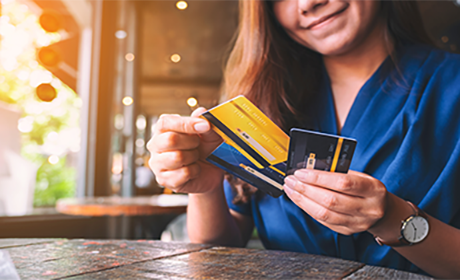












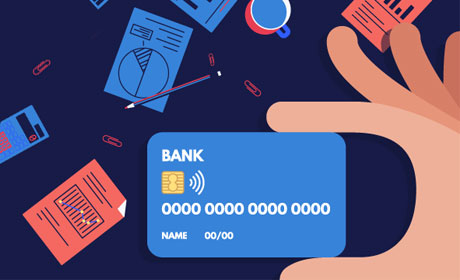
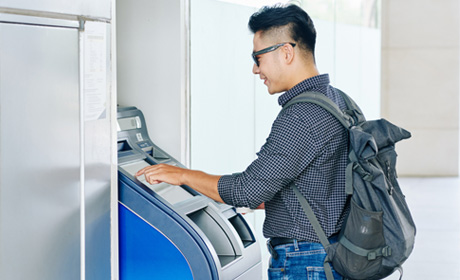

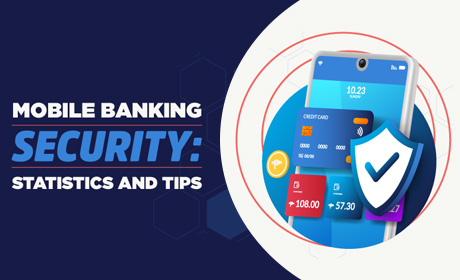
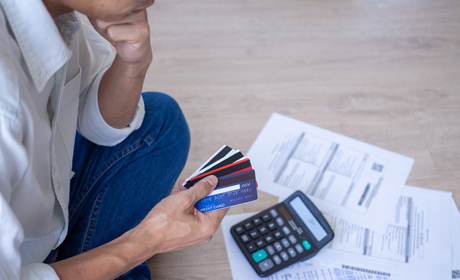

.png)
.png)




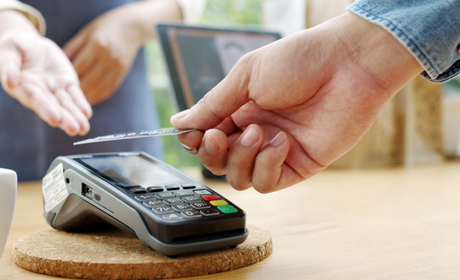
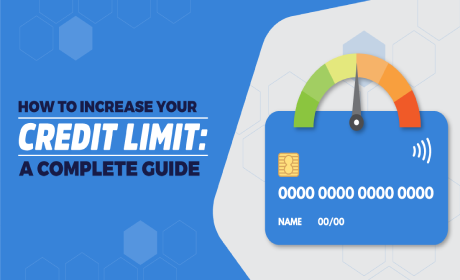
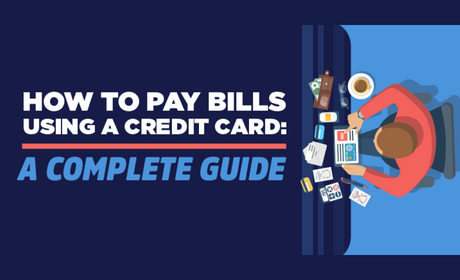



.jpg)
.jpg)
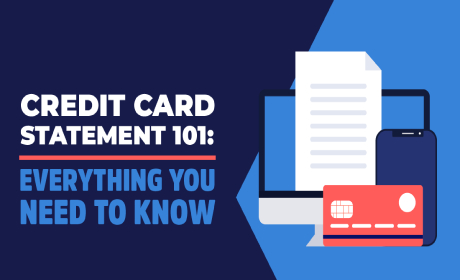
.jpg)

.jpg)

.jpg)



.jpg)
 (1).jpg)
 (1).jpg)
 (1).jpg)

.jpg)
 (1).jpg)
 (2) (1).jpg)
 (2) (1).jpg)
.jpg)
 (1).jpg)
 (1).jpg)
 (1).jpg)


.jpg)
.jpg)
.jpg)
.jpg)

.jpg)
.jpg)


.jpg)
.jpg)
.jpg)
.jpg)
.jpg)
.jpg)
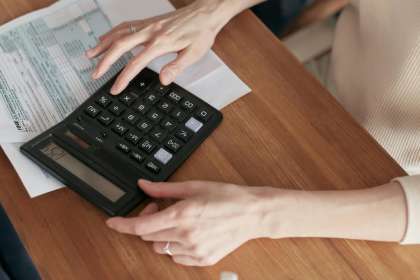

.jpg)
 (1).jpg)

.jpg)

.jpg)
.jpg)
.jpg)
.jpg)
.jpg)
.jpg)


